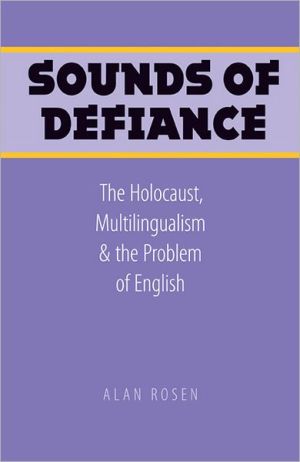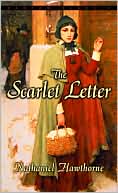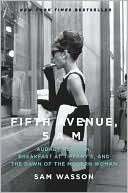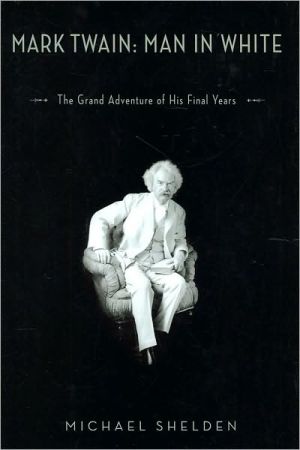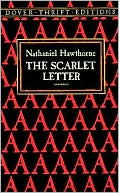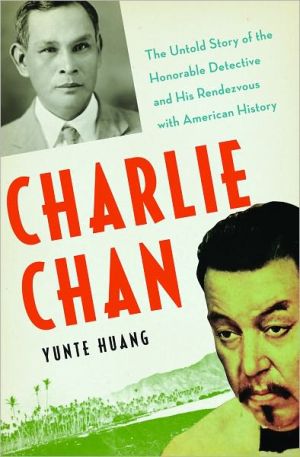Sounds of Defiance: The Holocaust, Multilingualism, and the Problem of English
Language has frequently been at the center of discussions about Holocaust writing. Yet English, a primary language of neither the persecutors nor the victims, has generally been viewed as marginal to the events of the Holocaust. Alan Rosen argues that this marginal status profoundly affects writing on the Holocaust in English and fundamentally shapes our understanding of the events. Sounds of Defiance chronicles the evolving status of English in writing about the Holocaust, from the period of...
Search in google:
Language has frequently been at the center of discussions about Holocaust writing. Yet English, a primary language of neither the persecutors nor the victims, has generally been viewed as marginal to the events of the Holocaust. Alan Rosen argues that this marginal status profoundly affects writing on the Holocaust in English and fundamentally shapes our understanding of the events. Sounds of Defiance chronicles the evolving status of English in writing about the Holocaust, from the period of the Second World War to the 1990s. Each chapter highlights a representative work from a different genre—psychology, sociology, memoir, tales, fiction, and film—and examines the special position of English with regard to the Holocaust, supported by references to the role of other languages, including Hebrew, Yiddish, and German. This original approach provides a new perspective on such standard works as Eichmann in Jerusalem, The Shawl, and Maus, while drawing attention to others largely unknown. Rosen also links this analysis of English writing to developments in the postwar period: the escalating production of writing on the Holocaust in English; the increasing prestige of English as a global language; and paradoxically, within the contexts of neocolonial and multilingual studies, the increasingly uncertain position of English.Biography"Rosen has written a timely, valuable, and illuminating book. . . . Sounds of Defiance is heartfelt and intelligent, and it points the way for future studies of the role of English in conveying the Jewish catastrophe of the twentieth century."— Natania Rosenfeld, Biography
Sounds of Defiance\ The Holocaust, Multilingualism, and the Problem of English \ \ By Alan Rosen \ University of Nebraska Press\ Copyright © 2005 University of Nebraska Press\ All right reserved.\ \ \ \ Preface\ Not far from where I live in Jerusalem, a sign directs motorists to Yad Vashem, site of Israel's Holocaust memorial and education center. The sign is clearly apropos: the memorial is just a five-minute drive or a twenty-minute walk. For my purposes, however, what is crucial is not so much the memorial as the sign that directs the visitor to it. This street sign, like many if not most in Jerusalem, states its instruction in three languages: Hebrew, Arabic, and English. \ The first time I noticed this fact I was astonished and elated. I had already for some years been at work on the topic of the Holocaust and multilingualism, and this sign seemed to vindicate the focus of my work. Here, in something so common as a street sign, multiple languages were bound up with the Holocaust. But this self-flattering justification for my work was only the first, and perhaps least important, level that the sign evoked. More important was the complex inbreeding of the languages. Though the sign denoted the name of the memorial in three scripts, the name of the memorial itself is given in a single tongue, Hebrew. The name, Yad Vashem, derives originally from the Bible's Book of Isaiah and translates literally as "a hand and a name." The story of how this name was chosen for Israel's memorial is too long to rehearse here. But what isstriking is that the sign's apparent multilingualism was more exactly multiple transliteration. The three scripts, at bottom, refer to the same monolingual designation.\ The most astonishing feature of the sign was that it included Arabic. There is really nothing novel in its being on the sign, for Jerusalem street signs, catering to populations of Hebrew, Arabic, and English speakers (or readers, or pidgin readers), commonly have the three tongues. But for me the particular marvel of this sign was that it directs Arabic speakers to Israel's Holocaust memorial. Were there really members of the Arab community who sought the way to the memorial? I would hope so. But in a sense, it did not matter. For whatever the answer to the question regarding Arab visitors to Yad Vashem, the sign announced to the Hebrew-speaking community that such a memorial was also meant for both the Arab and the Jewish communities.\ Lest one think that I am projecting more onto the sign's multiple tongues (or scripts) than it warrants - and I, for one, thought that I was going too far - I recently passed by the same sign to find that the Arabic script had been blackened over and was now illegible. There was, it seems, at least one other person who had taken in the full meaning of what the Arabic signified. Envisioning such a broad community that could be drawn to the memorial was too much for the vandal to bear. I don't imagine that the intent was to keep out this broader community so much as it was to protest the symbolic inclusion that the sign, with its three tongues, legitimized.\ Among the three tongues, Hebrew and Arabic have so far played the primary roles in my narrative, which shouldn't come as a surprise. They are the languages of the indigenous residents of the area, those who clearly have the greatest stake in the demarcation of place, location, and memory. But the sign displays a third tongue, English, the language of the visitor. This book offers a commentary on the logic of its inclusion and chronicles the evolving status of English writing about the Holocaust, an account that begins with the period of the Second World War and concludes with the 1990s. The primary language of neither the persecutors nor the victims, English has generally been viewed as marginal to the events of the Holocaust. I argue that this marginal status profoundly affects writing on the Holocaust in English and fundamentally shapes our understanding of the events. Specifically, I will show that writing in the immediate postwar period expresses anxiety about addressing the Holocaust in English; whereas fifty years later, some works go so far as to celebrate the virtues of English as a language of the Holocaust.\ Each chapter highlights certain representative works - psychological and sociological studies, memoir, tales, fiction, and film - and analyzes how these works reveal and then arbitrate the special status of English. Although I have included what I perceive to be a significant range of responses to the Holocaust, I have in the interest of focus omitted other kinds, particularly poetry and drama. I also limit the contours of the study in another way: the postwar English-language responses that I feature were produced in the United States and (in the case of Fugitive Pieces) Canada. I deal, then, primarily with what German translators refer to as Americanish.\ I arrange the chapters chronologically, starting with the immediate postwar period (from 1946 to 1950) to recent publications (the 1990s) in order to best narrate the transformation of the position of English over fifty to sixty years. The story of this transformation will be at the forefront, accompanied by references to the roles of other languages (Hebrew, Yiddish, German) and accomplished through the analysis of the individual texts. I begin with a project conceived during the war and realized in its immediate aftermath then move through the postwar decades. Each reading builds on what came before. Cultural trends, moreover, shape and limit the readings. I could only make the arguments that I set forth by proceeding in this fashion. Such an approach might seem obvious: an event grounded in history would summon forth a historically minded analysis. But no book on Holocaust writing has taken this approach. Further, those books that have attempted to chronicle English-language response to the Holocaust have either overlooked early responses or have seen these responses as exceptional rather than as representative. By proceeding in this fashion, I thus hope not only to revise the way that English-language writing has been viewed but also to reconstrue the way Holocaust writing in general should be approached.\ What happened with English-language writing on the Holocaust also came about because of the sensational and disputed status of English in the twentieth century. I thus also link my analysis of Holocaust writing to a number of developments in the postwar period: the growing amount of writing on the Holocaust in English; the increasing prestige of English as a global language; and, within the contexts of neocolonial and multilingual studies, the uncertain position of English that has emerged in this era. English, as it has addressed the Holocaust, receives my primary attention; the problem of English as a twentieth-century phenomenon plays a supporting yet significant role in my analysis.\ (Continues...)\ \ \ \ \ Excerpted from Sounds of Defiance by Alan Rosen Copyright © 2005 by University of Nebraska Press. Excerpted by permission.\ All rights reserved. No part of this excerpt may be reproduced or reprinted without permission in writing from the publisher.\ Excerpts are provided by Dial-A-Book Inc. solely for the personal use of visitors to this web site. \ \
Introduction : everything is all right, or the problem of English writing on the Holocaust11950 : English in the aftermath1Evidence of trauma : English as perplexity in David Boder's Topical autobiographies212An entirely different culture : English as translation in John Hersey's The wall343What does he speak? : English as mastery in Ruth Chatterton's Homeward borne501960 : law's languages, Eichmann, and after4Please speak English : babbling in Philip Roth's "Eli, the fanatic"655From law to outlaw : borrowed English in Edward Wallant's The pawnbroker786Law's languages : Hannah Arendt's mother and other tongues947Say "good boy" : legitimizing English in Sidney Lumet's The pawnbroker1128Cracking her teeth : broken English in Cynthia Ozick's fiction and essays1249The language of dollars : English as intruder in Yaffa Eliach's Hasidic tales of the Holocaust13910The language of survival : English as metaphor in Art Spiegelman's Maus15711Eaten away by silence : English as elegy in Anne Michaels's Fugitive pieces175Conclusion : in the thick of the fray, or English as the third tongue187
\ Holocaust and Genocide Studies\ - Jonathan M. Alexander\ “Sounds of Defiance is a comprehensive work that establishes links between otherwise distinct forms of expression. Most impressive is the reliable connective tissue that Rosen creates to explore the roles of language through six decades of Holocaust self-representation. In the end, Rosen delivers a valuable and broad-ranging resource to students of linguistics, film, poetics, and the psychology of traumatic memory.”—Jonathan M. Alexander, Holocaust and Genocide Studies\ \ \ \ \ \ American Literature“Sounds of Defiance is an absorbing examination of how English, a marginal language in the wartime history of European Jewry, has figured in Holocaust narratives that originate from multilingual contexts. . . . Following the useful introduction, eleven chapters, each one a pleasure to read for its clarity and insightfulness, consider not only whether but also how English functions as a language of the Holocaust. . . . Rosen’s work, an important contribution to Holocaust studies, can inspire and provoke all scholars interested in ‘global English’ and in multilingualism and speech in literary studies.” —American Literature\ \ \ Shofar: An Interdisciplinary Journal of Jewish Studies"Alan Rosen . . . engages the ideas of such thinkers as Dorothy Bilik, Shoshana Felman, Sander Gilman, Alan Mintz, and Hana Wirth-Nesher. Like many of these critics, he approaches the subject of Holocaust history, fiction, and film with an appreciation of spoken and written Polish, Yiddish, Hebrew, and German as well as English languages and traditions."\ \ \ \ \ Biography"Rosen has written a timely, valuable, and illuminating book. . . . Sounds of Defiance is heartfelt and intelligent, and it points the way for future studies of the role of English in conveying the Jewish catastrophe of the twentieth century."—Biography\ — Natania Rosenfeld\ \ \ \ \ \ Holocaust and Genocide Studies“Sounds of Defiance is a comprehensive work that establishes links between otherwise distinct forms of expression. Most impressive is the reliable connective tissue that Rosen creates to explore the roles of language through six decades of Holocaust self-representation. In the end, Rosen delivers a valuable and broad-ranging resource to students of linguistics, film, poetics, and the psychology of traumatic memory.”—Jonathan M. Alexander, Holocaust and Genocide Studies\ \ — Jonathan M. Alexander\ \ \ \ \ \ Shofar“Alan Rosen . . . engages the ideas of such thinkers as Dorothy Bilik, Shoshana Felman, Sander Gilman, Alan Mintz, and Hana Wirth-Nesher. Like many of these critics, he approaches the subject of Holocaust history, fiction, and film with an appreciation of spoken and written Polish, Yiddish, Hebrew, and German as well as English languages and traditions.”—Shofar: An Interdisciplinary Journal of Jewish Studies\ \ \ \ \ Biography\ - Natania Rosenfeld\ "Rosen has written a timely, valuable, and illuminating book. . . . Sounds of Defiance is heartfelt and intelligent, and it points the way for future studies of the role of English in conveying the Jewish catastrophe of the twentieth century."—Biography\ \
